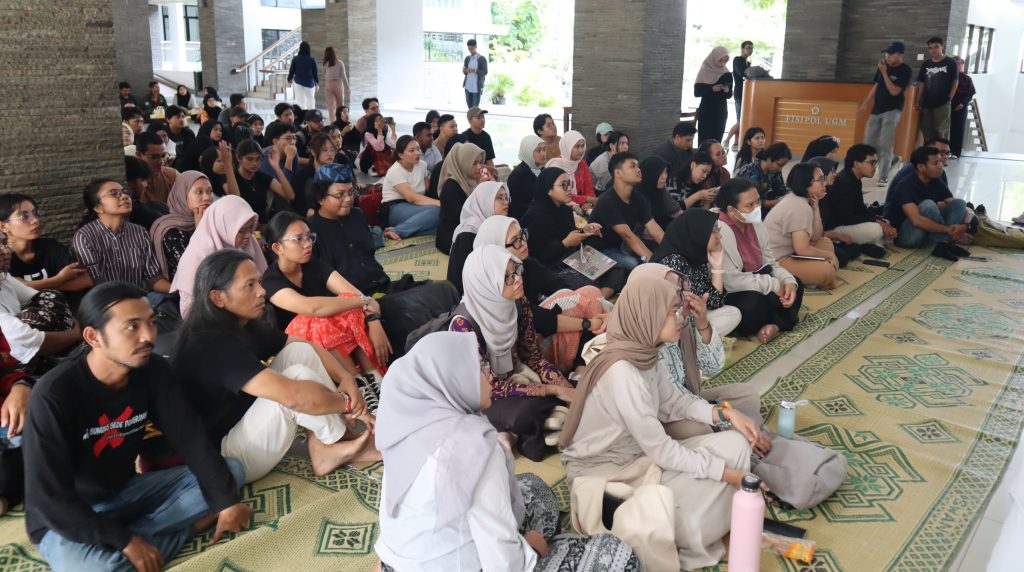PolGov FISIPOL UGM Supports Village Democratization Through the Selection of Babadan Hamlet Head
A desa or kelurahan, is a territorial unit composed of multiple households, each governed by its own system. According to the Central Bureau of Statistics (BPS), Indonesia had 84,048 desa or kelurahan by 2024. In the Special Region of Yogyakarta (DIY), the nomenclature shifted to kalurahan in 2020, reflecting the area’s distinctive administrative status (keistimewaan). Each kalurahan encompasses smaller administrative units termed padukuhan or dusun, led by an individual known as a dukuh.
On April 30, 2025, PolGov, in collaboration with the Government of Kalurahan Sitimulyo, Kapanewon Piyungan, Bantul Regency, organized a dukuh selection process for Babadan Hamlet. This event exemplifies PolGov UGM’s commitment to community service, academic excellence, and fostering good governance at the village level.
The selection process featured five candidates and took place on the 4th floor of the BA Building at the Faculty of Social and Political Sciences, Universitas Gadjah Mada (FISIPOL UGM). This venue was selected to maintain a professional and orderly environment during the process.
The selection committee conducted a series of assessments, all completed in one day. These assessments included a CAT written test, psychological assessment, computer skills assessment, Leaderless Group Discussion (LGD), practical public speaking test (in Javanese), and an interview. The goal was to find a dukuh candidate who possesses competence, integrity, and the ability to effectively serve the community.
Upon the selection process’s conclusion, the committee transparently presented the examination results to the Kalurahan Sitimulyo government. The entire process was conducted smoothly and efficiently, underscoring the committee’s commitment to ensuring that the chosen candidate meets the essential qualifications for the dukuh role.
The success of this process could serve as a model for other padukuhan in the Special Region of Yogyakarta, highlighting the significance of accountability and capacity-building in local governance. This initiative supports the Sustainable Development Goals (SDGs), particularly by enhancing the readiness of local institutions for the future and encouraging collaboration among stakeholders. It closely aligns with the principles of SDG 17, which emphasizes the role of partnerships in achieving sustainable development.
 Previous Post
Previous Post Next Post
Next Post